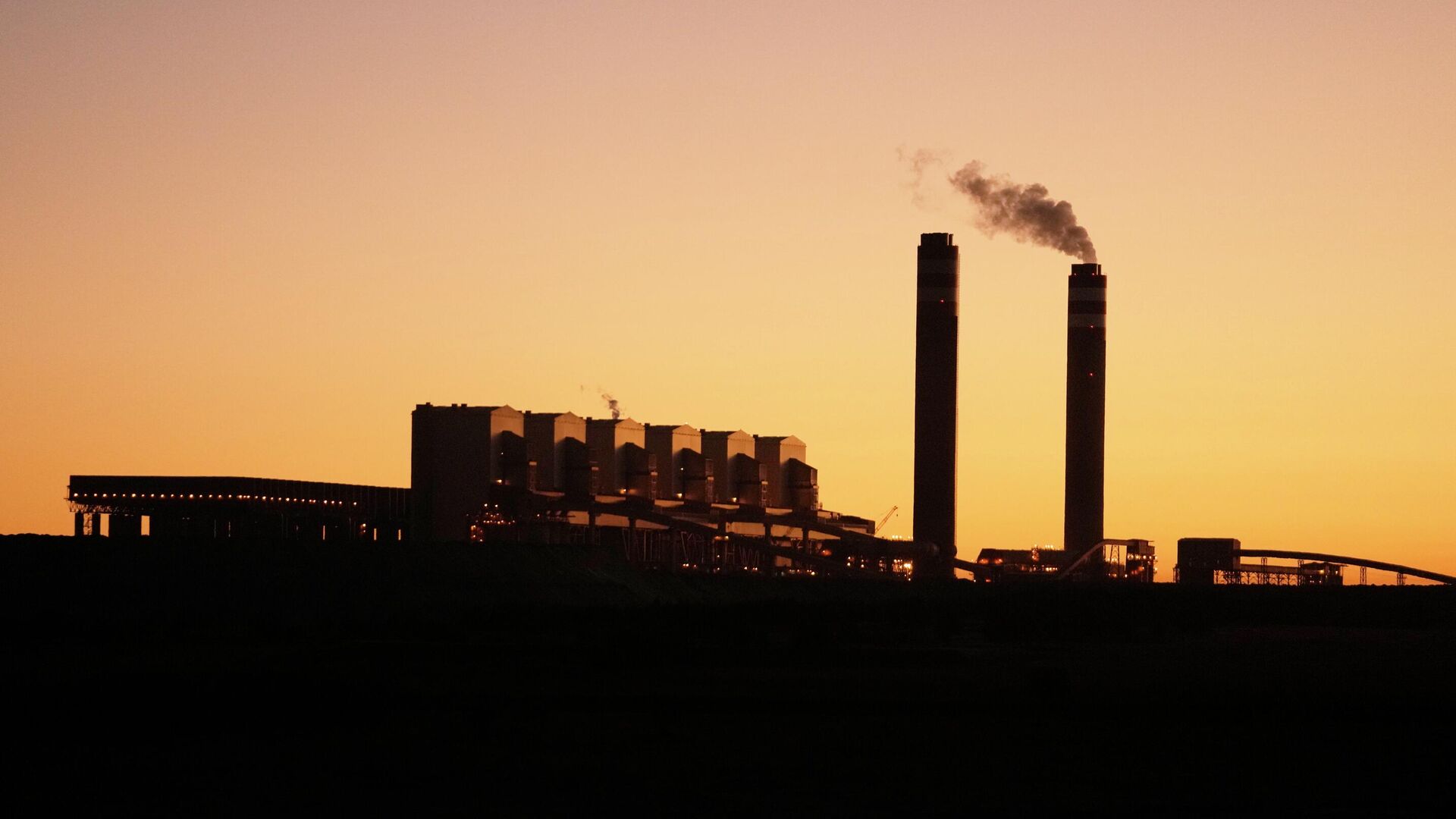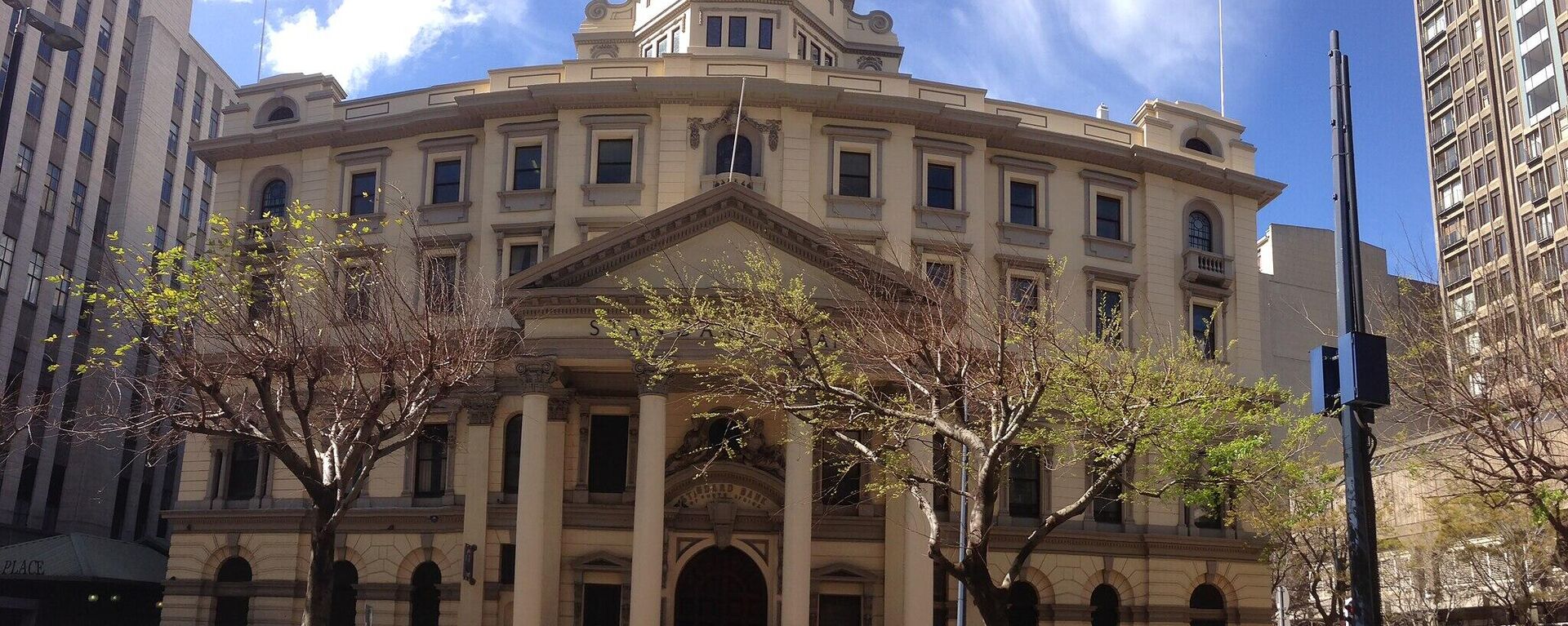https://en.sputniknews.africa/20231202/you-cant-go-from-electricity-to-darkness-sa-energy-minister-warns-developing-nations-1063906568.html
'You Can’t Go From Electricity to Darkness': SA Energy Minister Warns Developing Nations
'You Can’t Go From Electricity to Darkness': SA Energy Minister Warns Developing Nations
Sputnik Africa
The minister's comments came as South Africa, one of the continent's most developed countries, grapples with an energy crisis. Despite that, the South African... 02.12.2023, Sputnik Africa
2023-12-02T11:59+0100
2023-12-02T11:59+0100
2023-12-02T16:56+0100
sub-saharan africa
south africa
southern africa
european union (eu)
indonesia
senegal
west africa
vietnam
energy
renewable energy
https://cdn1.img.sputniknews.africa/img/07e7/08/0f/1061346947_0:0:2867:1614_1920x0_80_0_0_9f13f55a28e27a58737dd81989651e73.jpg
As South Africa implements a deal with Western countries to accelerate its phase-out of coal, the Minister of Environment Barbara Creecy has called on emerging economies to ensure that energy security and jobs are top priorities when making similar agreements.Creecy said that countries such as Indonesia, Vietnam and Senegal, which also received concessional funds, should jump-start energy security before switching to alternative supplies.The minister also called on developing countries to clarify the sources of public finance that will be made available to them for climate change mitigation and adaptation.The minister's remarks came against the backdrop of South Africa's implementation of the Just Energy Transition Partnership with France, Germany, UK, US and EU. The agreement, under which Western countries have pledged $8.8 billion in funding to get Pretoria off coal faster, includes, among other things, accelerating the closure of coal-fired power plants. In addition, South African President Cyril Ramaphosa reportedly expressed his opposition to Western pressure when he did not attend the Nairobi Climate Summit in early September. According to Kenyan media, the leader's absence was in protest against "pressure from some European partners" to transition to renewable energy and away from coal, which accounts for 80% of the country's energy.Developed Countries Responsible for Climate CrisisMinister Creecy also commented on the ongoing 28th United Nations Climate Change Conference (COP28). She emphasized that African countries are focusing on adaptation at the COP28 talks in Dubai, United Arab Emirates, because historically, "the continent has contributed less than 2% to the accumulation of emissions that’s causing the current crisis" but has been hit hard.She stressed that developing countries, especially on the African continent, are suffering from the climate crisis created by developed countries, which is recognized by the Paris Agreement.COP28 kicked off on Thursday and will run through December 12. The summit brings together world leaders, global organizations, and stakeholders to negotiate and collaborate on efforts to address the climate crisis.
https://en.sputniknews.africa/20231023/africa-has-right--duty-to-harness-natural-resources-to-improve-peoples-lives-sa-bank-director-1063018691.html
south africa
southern africa
indonesia
senegal
west africa
vietnam
Sputnik Africa
feedback@sputniknews.com
+74956456601
MIA „Rossiya Segodnya“
2023
Maxim Grishenkin
https://cdn1.img.sputniknews.africa/img/07e7/0a/17/1063018107_0:0:1104:1103_100x100_80_0_0_03090c85a11f5d2e8a19cf1d989443c9.jpg
Maxim Grishenkin
https://cdn1.img.sputniknews.africa/img/07e7/0a/17/1063018107_0:0:1104:1103_100x100_80_0_0_03090c85a11f5d2e8a19cf1d989443c9.jpg
News
en_EN
Sputnik Africa
feedback@sputniknews.com
+74956456601
MIA „Rossiya Segodnya“
Sputnik Africa
feedback@sputniknews.com
+74956456601
MIA „Rossiya Segodnya“
Maxim Grishenkin
https://cdn1.img.sputniknews.africa/img/07e7/0a/17/1063018107_0:0:1104:1103_100x100_80_0_0_03090c85a11f5d2e8a19cf1d989443c9.jpg
south africa, southern africa, european union (eu), indonesia, senegal, west africa, vietnam, energy, renewable energy , cop28 in uae
south africa, southern africa, european union (eu), indonesia, senegal, west africa, vietnam, energy, renewable energy , cop28 in uae
'You Can’t Go From Electricity to Darkness': SA Energy Minister Warns Developing Nations
11:59 02.12.2023 (Updated: 16:56 02.12.2023) The minister's comments came as South Africa, one of the continent's most developed countries, grapples with an energy crisis. Despite that, the South African government this week reportedly proposed a plan to transition the economy away from fossil fuels within five years for a nation that now gets 80% of its energy from coal.
As South Africa implements a deal with Western countries to accelerate its phase-out of coal, the Minister of Environment Barbara Creecy has called on emerging economies to ensure that energy security and jobs are top priorities when making similar agreements.
"You can’t go from electricity to darkness," she said in an interview with Western media. "That’s not good for your economy, it’s not good for communities, it’s not good for your development trajectory."
Creecy said that countries such as Indonesia, Vietnam and Senegal, which also received concessional funds, should jump-start energy security before
switching to alternative supplies.
The minister also called on developing countries to clarify the sources of public finance that will be made available to them for climate change mitigation and adaptation.
The minister's remarks came against the backdrop of South Africa's implementation of the Just Energy Transition Partnership with France, Germany, UK, US and EU. The agreement, under which Western countries have pledged $8.8 billion in funding to get Pretoria off coal faster, includes, among other things, accelerating the closure of coal-fired power plants.
However, several cabinet ministers have reportedly said that the terms of the agreement are exacerbating power shortages and contributing to the rolling blackouts that have plagued the country for years.
In addition, South African President Cyril Ramaphosa reportedly expressed his opposition to Western pressure when he
did not attend the Nairobi Climate Summit in early September. According to Kenyan media, the leader's absence was in protest against "pressure from some European partners" to transition to renewable energy and away from coal, which accounts for 80% of the country's energy.
Developed Countries Responsible for Climate Crisis
Minister Creecy also commented on the ongoing 28th United Nations
Climate Change Conference (COP28). She emphasized that African countries are focusing on adaptation at the COP28 talks in Dubai, United Arab Emirates, because historically, "the continent has contributed less than 2% to the accumulation of emissions that’s causing the current crisis" but has been hit hard.
She stressed that developing countries, especially on the African continent,
are suffering from the climate crisis created by developed countries, which is recognized by the Paris Agreement.
"The Paris Agreement recognizes that developed countries have created the climate crisis, it recognizes that developed countries have their accumulated wealth as a result of the burning of fossil fuels, and it recognizes the responsibility of developed countries to contribute to the climate transitions of developing countries," Creecy noted.
COP28 kicked off on Thursday and will run through December 12. The summit brings together world leaders, global organizations, and stakeholders to negotiate and collaborate on efforts to address the climate crisis.



